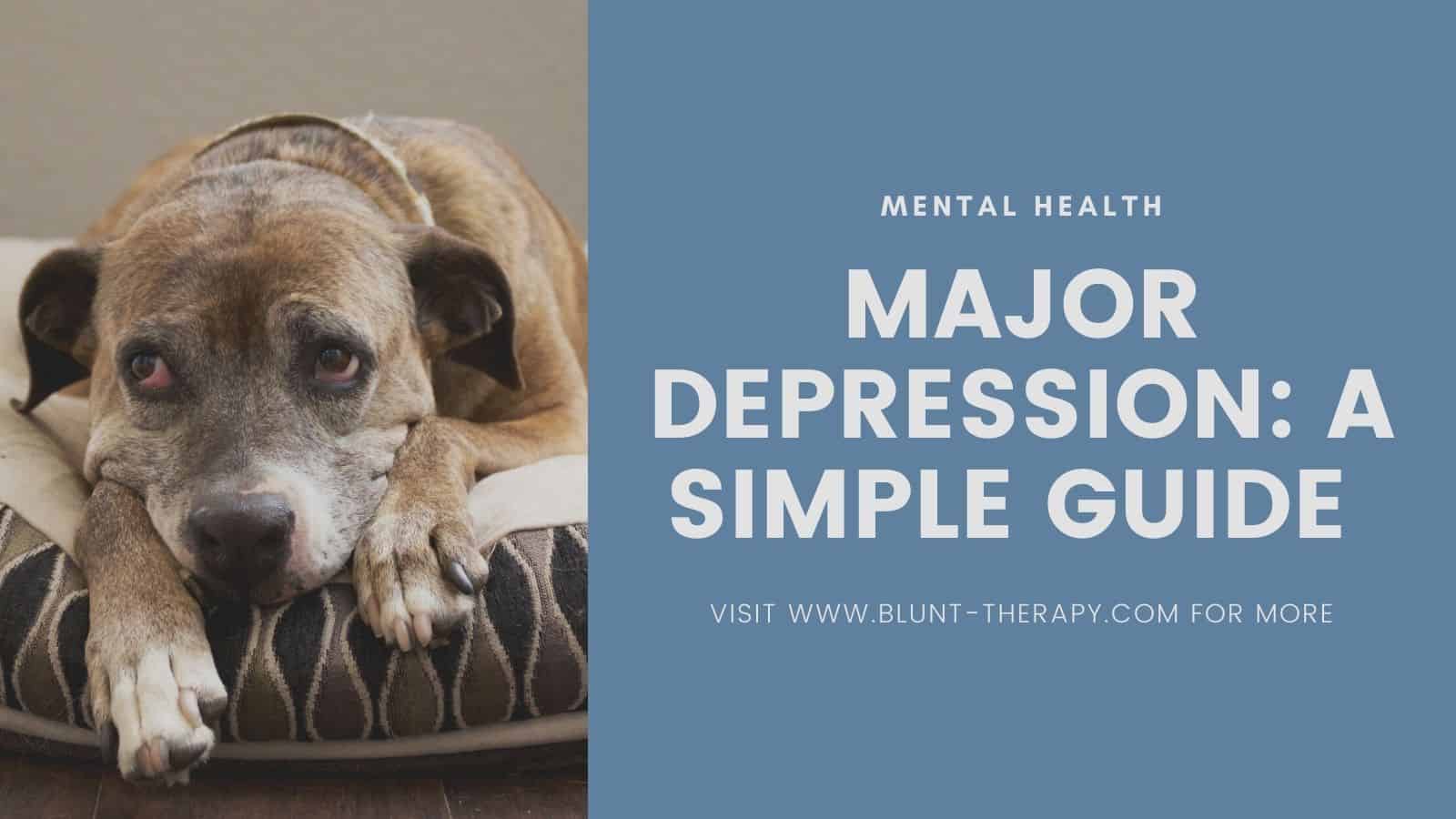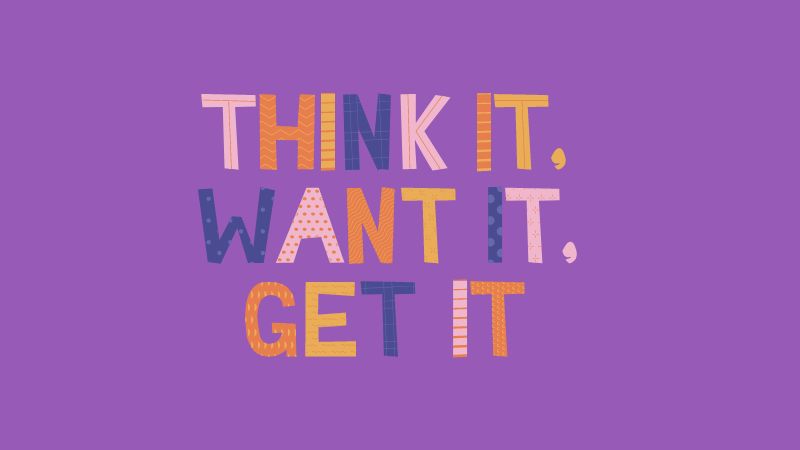Table of Contents
Affiliate link notice: As an affiliate of BetterHelp and other third-party vendors, We will receive compensation if you make a purchase using the links provided on this page. For more information, visit our disclosure page.
Last Updated on February 19, 2022 by Randy Withers, LCMHC
One of the biggest lies we are told as children is that sticks and stones may break our bones, but words will never hurt us.
The truth is, words cut deep and leave scars that last for decades. It begins with the messages we receive from our parents and other authority figures. But it continues into adulthood, infecting us with distorted thinking patterns that make us miserable.
As we grow into adulthood, problematic but common cognitive distortions define how we perceive ourselves and the world around us. The result for many is a lifelong battle with low self-esteem, depression, and anxiety.

What Are Cognitive Distortions?
A “cognitive distortion” is an unhealthy and maladaptive pattern of distorted thinking built on an irrational belief system. Alcoholics Anonymous calls it “stinking thinking,” which is as good a description as any. Common cognitive distortions include black or white thinking, mind reading, and mental filtering.
We’ll talk more about what those are in a little bit.
Cognitive distortions often turn us into our own worst enemy. As a therapist, I see the harm they cause all the time. In sessions, I listen to my clients talk about themselves in a way that they would never speak about other people. They hold themselves to impossibly high standards. They self-judge. They scold. They show a total lack of empathy.
It’s brutal.
So, where does these nasty little fellas come from?
Negative Core Beliefs: An Introduction
These common cognitive distortions are a symptom of much larger issues that lurk in the shadows of the unconscious mind. We call them “Negative Core Beliefs.” And if we are not careful, they can control every decision we make.
Examples of Negative Core Beliefs:
- I am not good enough.
- The world is unsafe.
- People cannot be trusted.
- Those closest to me will eventually abandon me.
- I am unlovable.
- Nobody likes me.
- I am a bad person.
The genesis of these core beliefs is often childhood trauma, which is aided and abetted over the years by low self-esteem. Core beliefs are incubators for all manner of awfulness, from personality, depressive, and anxiety disorders to loneliness, laziness, and abuse.
In other words, how we think about ourselves —and the world around us —can cause major problems. Especially if those thoughts are based on harmful lies.
In order to fight these distorted thinking patterns, you first have to understand what they are and how to spot them. To that end, here’s a list of some common cognitive distortions, with tips on what to do about them:

10 Common Cognitive Distortions (AKA Distorted Thinking Patterns)
If you are one of the tens of millions who suffer from post-traumatic stress, anxiety, or depression, you probably struggle with at least one of these common cognitive distortions.
1. All-Or-Nothing (AKA Black or White) Thinking
Many cognitive distortions rely on”All-Or-Nothing” thinking, but it’s important enough to warrant its own spot. All-or-Nothing thinking happens when we see something as all one way or all the other way. People are all bad, or all good. Police are all bad, or all good. Life is all bad, or all good.
Examples:
- Nobody likes me.
- People can’t be trusted.
- Nothing ever works out.
- I’m a bad person.
Tip: Learn to avoid binary thinking. Things are rarely either this or that. The world exists in myriad shades of gray, as do you. Are some people untrustworthy? Sure. Do some people dislike you? Probably. Does that mean all people can’t be trusted or that all people don’t like you? No, it does not.
2. Labeling
Another common cognitive distortion is called “Labeling”. It’s an extreme form of overgeneralization that occurs when we make a value judgment based on one bad experience.
Examples:
- You lose your job, so you are unemployable.
- One date goes bad, so you are unlovable.
- You failed an exam, so you are stupid.
Tip: Remind yourself that one instance does not a pattern make. Often in life, events happen independent of other events, and that what you perceive as a failure is actually an opportunity to grow.
3. Magical Thinking
Control is an illusion, but that doesn’t stop us from thinking that we have it over anyone or anything else but ourselves. Often seen in people who struggle with Obsessive-Compulsive Disorder, “Magical Thinking” is a common cognitive distortion wherein we believe that our thoughts or actions can somehow influence events that are beyond our control.
Examples:
- I’ll meet my future spouse as soon as I lose 25 pounds.
- This depression will end if I make more money.
- People will respect me more if I buy a new car.
Tip: Remember that anxiety springs from a desire to control that which we cannot. To paraphrase The Serenity Prayer, we must learn to accept that which we cannot change, have the courage to change the things we can, and be smart enough to know which is which.
4. Emotional Reasoning
Cognitive distortions use our emotions against us. When we mistake our feelings for facts, we allow our emotions to dictate reality. If you feel a certain way, then it must be true. The problem is, feelings are often unreliable. That’s the problem with “emotional reasoning,” an oxymoron if there ever was one.
Examples:
- I feel worthless, so I am worthless.
- I feel like my friends don’t like me, so my friends don’t like me.
- I feel like I’ll never find love, so that means I’ll always be alone.
- She’s the one. I can feel it.
Tip: One of the many interventions in CBT is an exercise where you put your thoughts on trial. Ask yourself this: were I to go in front of a judge, could I persuade the court using actual evidence that backs up the way I feel? Remember, your emotions are not admissible. Could you make your case?
5. Should Statements
Often, you can spot cognitive distortions by listening for certain words like “should.” What you “should” do, what you “must” do, what you “ought to” do. Should statements impose a harsh set of expectations that are unlikely to be met.
Examples:
- I have friends. I shouldn’t be depressed (or sad, or angry, etc.).
- I’m smart. I shouldn’t struggle in math class.
- I’m friendly to strangers, so strangers ought to be friendly to me.
- People must like me.
Tip: When I hear clients use a “should” statement, I often say “according to whom?” Why must people like you? Or, why don’t you have a right to feel the way you do? Ask yourself the same questions. You won’t be able to answer them.

Share this Image On Your Blog!
6. Mind-Reading
Do you ever assume that you know what’s going on in someone else’s head? That’s “mind-reading,” and while we may have a good idea if we know the person well enough, cognitive distortions of this type stem from the inherently negative slant we often give it. The truth is, we don’t know what someone else is thinking unless they tell us.
Examples:
- That woman won’t make eye contact. She doesn’t like me.
- Ms. Handler gave me a C in Chemistry. She hates me.
- My husband seems distracted. He must be cheating on me.
Tip: Try to keep in mind that humans are really bad at reading minds, even though we think we aren’t. Keep in mind that you are heavily influenced by your own thoughts and perceptions, and that it is wise to withhold judgment until you have the facts to back it up.
7. Fortune Telling
“Fortune Telling,” as the name implies, is when we think we know the future. We may base these fortunes on past experiences, but the past does not always predict future events. One bad date does not mean all future dates will be bad. Just because you haven’t been promoted yet doesn’t mean you won’t be in the future.
Examples:
- I will never be financially stable.
- Nobody would come to any party I’d throw.
- I will never get over my divorce.
Tip: Honestly examine your track record of predicting the future. How often have you been right? How often have you been wrong? If you’ve been wrong before, is it possible that you’re wrong now?
8. Catastrophizing (Or Minimizing)
These cognitive distortions are two sides of the same coin. They stem from when we exaggerate or minimize the relative importance of things. A minor setback becomes the end of the world. Or an important achievement is discarded as a fluke.
Examples:
- I lost my job. My life is over.
- My boyfriend and I got into an argument. He must hate me.
- My boss snapped at me. She’s going to fire me.
- I have battled depression for years because I’m a weak person.
Tip: Ask yourself if you are mistaking possible for likely. For example, is it possible that your boss will fire you? Sure. Is it likely? Probably not. Then, ask yourself if there are alternative points of view. Is it not a sign of strength to fight mental illness? Could it be that a better job opportunity awaits?
9. Ignoring The Good
This happens when we focus on relatively minor negative things instead of acknowledging all the positive things that just happened as well. Say, for example, that you scored a 98/100 on a 100 question exam. “Ignoring The Good” means you crucify yourself for missing two questions while ignoring the fact that you got 98 of them right.
Examples:
- You hit three line drives in that baseball game, but beat yourself up over the one strikeout.
- After a successful first date, you ruminate over that one dumb thing you said, ignoring the two hours of delightful conversation you just enjoyed.
- You have many friends, but you ruminate on the one individual who just doesn’t like you.
Tip: Remember that success is relative. In baseball, a player with a .400 batting average is considered exceptional, even though they fail 60% of the time. Reframe your negative thoughts into a more balanced assessment of the situation. For example: “Yes, that person doesn’t like me, but I have many great friends who do.”
10. Mental Filtering
Last on the list of cognitive distortions is “Mental Filtering,” which results from seeing the world through a strictly negative lens. Positives are either discounted or ignored. As you can imagine, mental filtering is especially bad for people who suffer from anxiety or depression.
Examples:
- You bemoan the loss of a toxic relationship, failing to see you are probably better off without him.
- A job loss is the end of the world, despite low pay and awful work conditions.
- You move to a new town, thinking your social life is over.
Tip: Perform a cost-benefit analysis of the situation. What do you lose? What do you gain? Take a sheet of paper, draw a line from the top to the bottom, and write down your findings. See if reality matches your perception of it.

How To Fight Cognitive Distortions With Cognitive-Behavior Therapy (CBT)
Ideally, the best way to overcome cognitive distortions is to work with a licensed mental health professional trained in Cognitive-Behavioral Therapy. Most therapists these days use some variation of CBT to teach clients how to challenge and overcome disroted thinking patterns.
The basic premise of CBT is that how we think affects how we feel, which in turn affects how we behave. If we change the way we think, we change how we feel, and we behave differently.
It sounds simple enough, but the truth is that it takes a lot of time and effort to change distorted thinking patterns. After all, our entire worldview is influenced by how we think and what we believe.
CBT is used to treat a host of mental disorders, including anxiety disorders, PTSD, depressive disorders, eating disorders, and substance use disorders (SUD). Research demonstrates that CBT is the current gold-standard in modern psychotherapy, as it is evidenced-based, well-researched, and effective
To find out if CBT is right for you, the best thing to do is to schedule an assessment with a licensed practitioner.
Online-Therapy.com specializes in CBT-based counseling. During the Coronavirus Pandemic, you can get started for free. Click the link to get started.
Self-Help Options
If therapy is not an option due to cost or availability, there are a number of free or low-cost options to consider. For example, the website TherapistAid offers dozens of free worksheets that you can download. The Beck Institute for Cognitive Behavior Therapy is also a good place to start.
You can also purchase more in-depth workbooks online from retailers like Amazon. Here are three I recommend you put on your shortlist. (Note: these aren’t affiliate links)
- The CBT Toolbox: A Workbook for Clients and Clinicians
- Cognitive Behavioral Therapy Made Simple: 10 Strategies for Managing Anxiety, Depression, Anger, Panic, and Worry
- Cognitive Behavioral Therapy Worksheets: 65+ Ready-to-Use CBT Worksheets to Motivate Change, Practice New Behaviors & Regulate Emotion
Finally, in the wake of COVID-19, online therapy has emerged as an excellent alternative to traditional face-to-face therapy. Some online counseling sites even specialize in Cognitive Behavior Therapy. If that interests you, check out Online-Therapy. Their licensed therapists do a wonderful job. Learn more about them by watching the video here:
Final Thoughts
You are not what you believe, nor are you a slave to your own thoughts. It may feel that way, but remember: feelings are not factual. Facts don’t change, but feelings can and do.
- Start with a simple admission. Your distorted thinking patterns are the problem.* Learn to recognize how your thoughts influence your emotions. Identify your core beliefs and start to dispute them.
- Give it time. Many clients who participate in CBT begin to find relief in as little as 8 to 15 sessions. When you consider the decades that these distortions have plagued you, a few months of therapy is nothing.
- Most importantly, give yourself a break. You are far too hard on yourself, and you’ve been that way for far too long. Don’t believe the lies you have told yourself. You have worth. You have value. And you matter.
Recommended Online Providers
I have used the following online counseling platforms and can vouch for their professionalism, effectiveness, and quality. It’s up to you to decide which one is the best fit. All three offer affordable access to high-quality licensed therapists.

- Offers video, voice-only, and text-based counseling.
- Access to a licensed therapist
- Specializes in Cognitive Behavior Therapy (CBT)
- Promotes use of worksheets, journals, and yoga.

- App available on Google Play and The App Store
- Offers real-time text-based counseling with phone and video messaging options.
- Access to a licensed therapist
- Offers psychiatry and accepts some insurance providers

- App available on Google Play and The App Store
- Offers, real-time video, chat, and text sessions.
- Access to a licensed therapist
- 70% of clients report reduction in depressive symptoms.
References
- Cognitive Distortions: 10 Examples of Distorted Thinking
- Cognitive Distortions: When Your Brain Lies to You (+ PDF Worksheets)
- 10 Cognitive Distortions Identified in CBT
- 20 Cognitive Distortions and How They Affect Your Life
- Cognitive Distortion and Problem Behaviors in Adolescents









